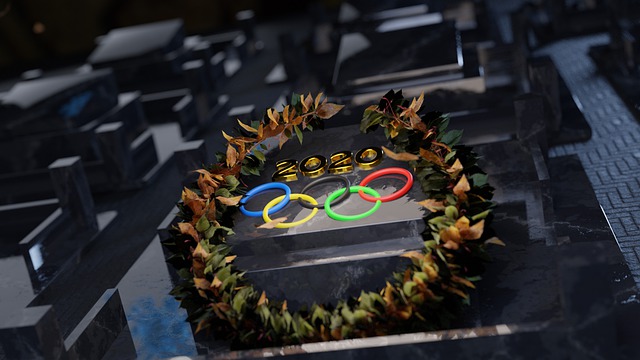Why We Need the Tokyo Olympics
One year delayed it may be, but the Tokyo Olympics is finally well on its way, offering much-needed solace from the battering the world has been receiving in recent times.
The 2020 Olympics was first announced on September 7, 2013, after a vote was taken in Buenos Aires. This is the second time for the city to host the Summer Games, the first being in 1964.
Little did we know that the excitement & anticipation that had built up starting that day was to be dashed by the COVID-19 virus, which hit the unsuspecting world in the early days of 2020. While the then-unknown virus was first reported to the World Health Organization in December 2019, most of us were still unaware of the impact it would have on our lives.
Japan was one of the first to suffer the effects of COVID-19. When most countries were still merely reading about this highly infectious virus, Japan was already dealing with it first-hand. British-registered cruise ship Diamond Princess entered Japanese waters in early February and was immediately quarantined when a passenger who previously disembarked in Hong Kong tested positive for the virus. Without a handbook or any scientific precedent, the Japanese government handled the matter the best it could, given the circumstances. Even today, the data scientists gathered has been crucial in learning as much as we can about the virus.

The Tokyo Olympics had to be postponed to 2021 due to what we all now know as life during a pandemic.
This brings us to a week of the 2020 Olympics – the event having retained its original name despite the delay – with the Japanese public not too happy about the situation.
In May of this year, the “Stop Tokyo Olympics” online petition led by Kenji Utsunomiya garnered 350,000 signatures in nine days. He made a strong call “for the prevention of spread of coronavirus and protection of lives and livelihood by using available resources to stop the Olympics”. According to Utsunomiya, the Olympics must be held when the country could welcome athletes and spectators without restrictions.
A poll conducted by Asahi Shimbun in the same month also revealed that 83 percent of Japanese votes were opposed to the Summer Games being held, favoring postponement or cancellation instead.
Furthermore, 73 percent of respondents stated they were unconvinced by Prime Minister Yoshihide Suga’s statement that “it is possible to hold the Olympics securely and safely” in the middle of a pandemic.
Despite the sentiments of the Japanese population, the Games pushed through. Something for which we ought to be thankful, as it is undeniable that the Tokyo Olympics is bringing a sliver of light into our lives. The lives of people the world over.
We need the Tokyo Olympics today more than ever
It is the epitome of the human spirit, what it is capable of. The very essence of the Olympics is to rise above difficulties and differences as a human race. It goes beyond games and sports. It serves as a bridge between people of all races, faith, and creed. During what may well be the most difficult time of this generation’s life, a celebration of this import is like manna from heaven.
Consider the path the Games has had to go through before finally taking place. COVID-19 is but one – albeit massive – obstacle. The economic and logistics nightmare resulting from the pandemic-induced delay is more than enough to derail even the most efficient machine that is the Japanese government. But the 7.1 magnitude earthquake that rocked Fukushima on February 13, 2021 – about a month before the Olympic torch relay was supposed to begin in the region – was another curveball. Highlighting the recovery of Fukushima from the nuclear catastrophe that happened about a decade ago is one of the goals of the Games.
That the Japanese government was able to go over these hurdles and carry on with the biggest global sporting event is nothing short of a miracle. Something both the Japanese populace and citizens of other countries ought to acknowledge and appreciate.
Now, let’s go back to the concept of Olympism, which was created by Pierre de Coubertin, the founder of the Olympic Movement:
“Olympism is a philosophy of life, exalting and combining in a balanced whole the qualities of body, will, and mind. Blending sport with culture and education, Olympism seeks to create a way of life based on the joy of effort, the educational value of a good example, social responsibility and respect for universal fundamental ethical principles.”
Think of a time – more than now – when the world could use “a way of life based on the joy of effort, the educational value of a good example, social responsibility and respect for universal fundamental ethical principles”. You’d be hard-pressed.
Think of the athletes who have been training for years for this momentous occasion. Think of those who do not have the privilege of having easy access to funds and big sponsors to help them train and truthfully, even simply live life during a pandemic. Japanese fencer Ryo Miyake is a prime example. To fund his Olympics dream, he delivered food for Uber Eats!
Think of the average person who has been beaten down by this seemingly never-ending pandemic. A person who could use every – any – nugget of positivity that he could find. That person may very well be you and me.
The Olympics is one such nugget. Especially so for countries who have reached heights they had never reached before. The Philippines and Bermuda won their first gold medal ever! How proud must their citizens be. The boost in the nations’ morale must be indescribable. These may seem little things, but the delight they bring to people matters a great deal.
Sports has always served (and always will serve) to bring people together, foster camaraderie, and lift spirits. Given our current situation, sure, it is easier to complain and feel resentment when we disagree with certain decisions, but perhaps it is more constructive to take the time to appreciate the things that give us joy when we need it the most. The circumstances surrounding the Olympics may not be perfect, but it is one thing that we need right now.
Feature Image by Viktar Masalovich from Pixabay

